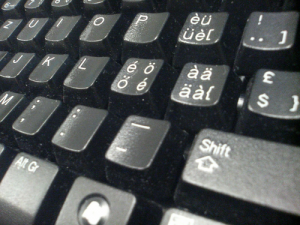Research by the Literary Trust has formed the basis of a new investigation by the Evening Standard to avert the problem of illteracy in both adults and children in London.
There have been some shocking statistics published:
– 1 million people in London cannot read.
– 1 in 4 children who leaves primary school is way below the recommended reading age.
– 1 in 3 children grows up without a book of their own.
Add this to the current campaign to save many of our country’s libraries from closure, as councils feel the pinch of the Coalition’s spending cuts, and it’s clear there’s a real crisis when it comes to the humble book.
As someone who reads on average a book a week, I find it difficult to comprehend why people don’t want to sit down and read a book, or more importantly want to teach their kids how to read.
Quite aside from the relaxation aspect of being able to sit down and read, books allow people to develop their imaginations.
It’s no surprise that the Standard campaign notes that the proportion of electronic gadgets in bookless households is v high.
When it comes to kids, these gadgets represent a perfect way for parents to ‘entertain’ them without putting in the effort. You see, for kids to learn to read requires some sort of parental input.
Sure, schools are important but they don’t have the resource to carry out intensive one-to-one tutelage any more. Parents need to pick up the slack at home. I know that’s what my mum did.
As for adults not reading, I confess that baffles me more. Much of it is habit and if you don’t start young (see a pattern emerging here) you are less likely to continue as you get older.
Obviously there are more distractions now than, say, 20 years ago, but that’s a poor excuse, if you ask me. It’s all about encouragement, opportunity and education.
You see, once you start reading, it’s a hard habit to break.
